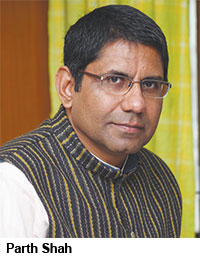A sound accountability system can be built by adopting one of two measures — a financing framework where funding follows students or funding public schools on the basis of learning improvements

Three years ago in 2016, in a monograph titled New Education Policy: Principles, Priorities & Practices, Centre for Civil Society argued that India needs an education policy that will retain children in school and ensure consistently high learning outcomes. We proposed that the new National Education Policy (NEP) should provide incentives to make the government school system accountable and enable parents to choose the most suitable school for their children. Does the recently released 484-page draft National Education Policy 2019 incorporate these goals?
Let’s begin with the goal of improving the performance of government schools. Our government/public school system is beleaguered by lack of accountability. Teachers are absent or when present, engaged with administrative tasks; bad teachers get rewarded and the good are stymied and principals are bereft of autonomy and authority. Parents, who can afford to do so, pull their children out of public schools and enroll them in private schools. In sum, the value derived by the public from funding government schools is abysmally low.
To improve the accountability of teachers and school leaders, the appraisal process has to be improved. On this the draft policy promises periodic (annual or higher frequency) performance appraisal of teachers on academic and soft skills competencies. While the proposed process is necessary, it is insufficient.
 Consequently, even with the numerous checks and balances through multiple appraisers of schools and teachers, learning outcomes of government schools are unlikely to improve. A sound accountability system can be built only by adopting one of two measures — a financing framework where funding follows students, and/or funding public schools on the basis of learning improvements. The draft policy doesn’t recommend either of these measures.
Consequently, even with the numerous checks and balances through multiple appraisers of schools and teachers, learning outcomes of government schools are unlikely to improve. A sound accountability system can be built only by adopting one of two measures — a financing framework where funding follows students, and/or funding public schools on the basis of learning improvements. The draft policy doesn’t recommend either of these measures.
While the policy draft intelligently proposes school complexes as the basic unit of governance and has recommended some autonomy enhancing ideas, funds for government schools will continue to flow through old allocative channels. Readily available financing options such as direct benefit transfers, scholarships and vouchers, which will improve institutional accountability, have been given a miss in the draft. Even if allowing funding to follow students as a lever to enforce accountability is too radical, surely funding of public schools can be tied to improved performance? If not all funding, at least some?
The draft policy proposes several progressive steps to track learning levels of children through an expansive and flexible assessment framework. However, it stops short of recommending these measures to track the performance of schools and teachers. Instead, it attempts to enforce accountability in government schools by building additional governance that will require many more bureaucrats, but give low returns by way of improved learning outcomes.
What of the democratic goal of enabling parental choice and acknowledging their aspirations? The most important stakeholder in school education, next only to children around whose needs and convenience the system ought to be built, are parents — the natural decision-makers for children. But the draft with its formulaic approach to language education does not take into account what parents may view as the most appropriate languages their child should learn and in what order of preference. It confuses what is essentially a public service advisory with authoritarian prescription of languages that must be taught in schools.
Instead of providing parents direct access to public funds to school their children in institutions of their choice, the nine-member Kasturirangan Committee, which wrote the 484-page draft NEP 2019, devolves the responsibility of being ‘de facto regulators’ of the school system upon them, recommending that parents play an active role in school management committees established under s.21 of the RTE Act. Besides caring for children and supervising learning at home, the draft policy expects parents to also monitor their children’s schools. Let’s put this proposal in perspective: when you are a customer for any other good or service, the way you ‘regulate’ the producer or provider is by taking your money elsewhere. This most fundamental understanding seems to be missing from the proposals for regulating school education. The best way to make parents ‘de facto regulators’ of schools is by providing them the government funding budgeted for their child with the option to switch to another school if necessary.
Making good policies is an exercise of matching evidence of what has worked in the past with what is desired — precedents with goals. A good policy delivers value to taxpayers, allows for innovation and the framing of effective administrative systems. On some of these premises the draft NEP 2019 has got it right. It diagnoses and prescribes separation of the education regulatory and service delivery functions of government and places learning outcomes front and centre of its recommendations while scaling back the historical emphasis on inputs. Yet, this is not enough. On the two critical issues of greater accountability of government schools and enabling parental choice, it is deficient.
(Dr. Parth Shah is founder-president & Bhuvna Anand, director of reserach at the Centre for Civil Society, Delhi)

NEP 2019 draft: Accountability lacuna
A sound accountability system can be built by adopting one of two measures — a financing framework where funding follows students or funding public schools on the basis of learning improvements
Three years ago in 2016, in a monograph titled New Education Policy: Principles, Priorities & Practices, Centre for Civil Society argued that India needs an education policy that will retain children in school and ensure consistently high learning outcomes. We proposed that the new National Education Policy (NEP) should provide incentives to make the government school system accountable and enable parents to choose the most suitable school for their children. Does the recently released 484-page draft National Education Policy 2019 incorporate these goals?
Let’s begin with the goal of improving the performance of government schools. Our government/public school system is beleaguered by lack of accountability. Teachers are absent or when present, engaged with administrative tasks; bad teachers get rewarded and the good are stymied and principals are bereft of autonomy and authority. Parents, who can afford to do so, pull their children out of public schools and enroll them in private schools. In sum, the value derived by the public from funding government schools is abysmally low.
To improve the accountability of teachers and school leaders, the appraisal process has to be improved. On this the draft policy promises periodic (annual or higher frequency) performance appraisal of teachers on academic and soft skills competencies. While the proposed process is necessary, it is insufficient.
While the policy draft intelligently proposes school complexes as the basic unit of governance and has recommended some autonomy enhancing ideas, funds for government schools will continue to flow through old allocative channels. Readily available financing options such as direct benefit transfers, scholarships and vouchers, which will improve institutional accountability, have been given a miss in the draft. Even if allowing funding to follow students as a lever to enforce accountability is too radical, surely funding of public schools can be tied to improved performance? If not all funding, at least some?
The draft policy proposes several progressive steps to track learning levels of children through an expansive and flexible assessment framework. However, it stops short of recommending these measures to track the performance of schools and teachers. Instead, it attempts to enforce accountability in government schools by building additional governance that will require many more bureaucrats, but give low returns by way of improved learning outcomes.
What of the democratic goal of enabling parental choice and acknowledging their aspirations? The most important stakeholder in school education, next only to children around whose needs and convenience the system ought to be built, are parents — the natural decision-makers for children. But the draft with its formulaic approach to language education does not take into account what parents may view as the most appropriate languages their child should learn and in what order of preference. It confuses what is essentially a public service advisory with authoritarian prescription of languages that must be taught in schools.
Instead of providing parents direct access to public funds to school their children in institutions of their choice, the nine-member Kasturirangan Committee, which wrote the 484-page draft NEP 2019, devolves the responsibility of being ‘de facto regulators’ of the school system upon them, recommending that parents play an active role in school management committees established under s.21 of the RTE Act. Besides caring for children and supervising learning at home, the draft policy expects parents to also monitor their children’s schools. Let’s put this proposal in perspective: when you are a customer for any other good or service, the way you ‘regulate’ the producer or provider is by taking your money elsewhere. This most fundamental understanding seems to be missing from the proposals for regulating school education. The best way to make parents ‘de facto regulators’ of schools is by providing them the government funding budgeted for their child with the option to switch to another school if necessary.
Making good policies is an exercise of matching evidence of what has worked in the past with what is desired — precedents with goals. A good policy delivers value to taxpayers, allows for innovation and the framing of effective administrative systems. On some of these premises the draft NEP 2019 has got it right. It diagnoses and prescribes separation of the education regulatory and service delivery functions of government and places learning outcomes front and centre of its recommendations while scaling back the historical emphasis on inputs. Yet, this is not enough. On the two critical issues of greater accountability of government schools and enabling parental choice, it is deficient.
(Dr. Parth Shah is founder-president & Bhuvna Anand, director of reserach at the Centre for Civil Society, Delhi)